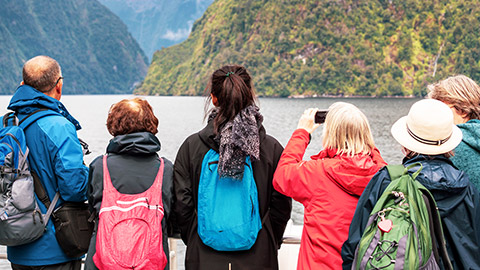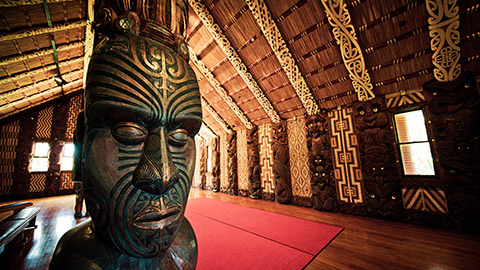Each tourist is motivated to travel differently and have there are a variety of reasons they might travel.
Let’s talk about their more specific product and service needs for their travel.
Example: A Russian tour group travelling to New Zealand.
Travel requirement needs: Pre-booked airfares, accommodation and escorted coach tours
Product and service needs: Accommodation close to town, tours with Russian translation/commentary.
One way of helping to determine their specific needs is by classifying tourists into types.

Below are examples of travel requirements, products and services that might be considered for the different types of international tourists.
This type of traveller does not want to pre-book or prepay their travel arrangements prior to departure (apart from their airfare) and instead will make all arrangements when they arrive at their destination. A FIT will not be part of a tour group or coach tour but would prefer to travel alone or with a friend, family or spouse. They are most likely to be travelling for a holiday.
FITs often come to New Zealand to visit friends and family, and with so many motels and other types of accommodation around New Zealand, and the roads being relatively easy to drive, New Zealand is a popular destination for FITs.
Similar to a FIT traveller but the semi-independent traveller is happy to make some arrangements prior to their departure. Some, or all their arrangements would have been paid for before they arrived in their destination.
They may decide to book one to two (1–2) night accommodation prior to departure and then book the rest when they arrive at their destination or they may book only a rental car and organise all their own accommodation on arrival at their destination.
Essentially, they like to travel around independently but have some of their arrangements already organised. SITs could be on holiday, a honeymoon or an incentive visit.

This is where a traveller buys a package which may include transfers, accommodation, and airfares and possibly sightseeing, transport and meals as a single purchase and individual components of the package will not be itemised. An example of this would be a package such as ‘Sydney for $599’.
The airfare, accommodation and sometimes airport transfers are all included in the price. Some, or all these travel arrangements would have been paid for before arrival at the destination.
Booking a package is popular for holidays, honeymoons and incentive visits. Package travellers often come to New Zealand for a cultural experience such as visiting Rotorua or for a sporting event such as the Rugby Sevens.
This is a traveller of any age who likes to stay in inexpensive accommodation. Backpackers prefer to spend less on their accommodation and more on attractions and activities. They usually have paid for some, or all their travel arrangements before arriving at their destination but will not have booked any part of their arrangements as a package.
One night or more (usually more) will be spent in backpacker accommodation, YHA hostel or budget accommodation. Backpackers often come to New Zealand as it is known as an adventure centre and this is a big attraction for them.
This type of traveller likes to have everything pre-booked and scheduled in advance. Depending on their budget they usually like to have accommodation of mid to high standard in central locations with plenty of services available such as room service, restaurants and pay TV.
They typically will have pre-paid all their travel arrangements before they go including airfares, transfers, coach travel inclusive of accommodation and even sightseeing tours.
Sometimes tours have optional extras and these types of travellers will have budgeted for those eventualities. Tour group travellers typically travel in larger countries/continents where pre-set itineraries allow more to be seen than could be done independently.
